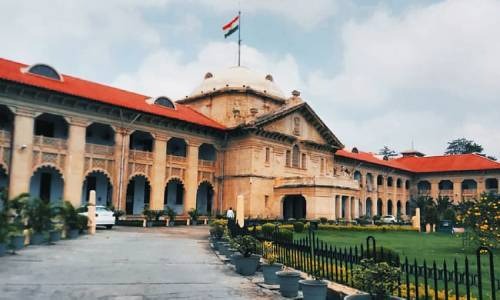
In an appeal filed under Section 14A of the SC/ST Act, Ghulam Rasool Khan and others/appellants contested the lower court's decision to take the case under consideration and summon them to trial. It was also contested that the procedure by which bailable warrants had been issued against the appellants in case of Ghulam Rasool Khan and others v. State of U.P. and others was unlawful.
They argued before the Court that the appeal might be turned into a bail application by using inherent powers under Section 482 Cr.P.C because it was submitted after the term of limitation specified in Section 14A(3) of the SC/ST Act.
However, the counsel for the respondents argued that since the 1989 Act's second proviso Section 14A (3), which set a 180-day deadline for filing an appeal was repealed, it was no longer necessary to convert an appeal into a bail application. Instead, the appeal could now be filed at any time in response to an order made by the Court below.
Before continuing, it should be noted that Section 14A(3) specifies a ninety-day window for appealing any judgement, sentence, or order. However, if adequate justification is given, a delay in submitting the appeal may be excused.
Additionally, the second provision of sub-section (3) [invalidated in In Re: Provision of Section 14A of the SC/ST (Prevention of Atrocities) Amendment Act, 2015] came with the caveat that no appeal will be considered after a period of 128 days. This did not allow much of a delay tolerance.
It should be observed that the non-obstante clause in Section 14A (1) of the Scheduled Castes and Scheduled Tribes (Prevention of Atrocities) Act, 1989, is intended to supersede the general provisions of the Cr.P.C.
To put it simply, pursuant to Section 14A(1) of the SC/ST Act, any judgement, cognizance order or any order not being an interlocutory order of Special Court, or an exclusive Special Court, shall be subject to appeal to the High Court, both on the basis of the facts and the law.
In essence, this means that even though Section 14A does not "oust" this Court's inherent or constitutional powers, they cannot be used in cases or circumstances where an appeal would be allowed under Section 14A. The Supreme Court already agreed with this legal position in Re: Provision of Section 14A of SC/ST (Prevention of Atrocities) Amendment Act,2015.
Finally, the Court noted that there will be no time limit for filing an appeal against an order under the terms of the 1989 Act because the second proviso to sub-section (3) of Section14A of the 1989 Act was invalidated by the Court in In Re: Provision of Section 14 (a) of SC/ST (Prevention of Atrocities) Amendment Act,2015. Therefore, the cures are available as listed.
Based on this particular case, the Court further decided that the aggrieved party who has a right of appeal under Section 14A of the 1989 Act is not permitted to use Section 482 of the Criminal Procedure Code to assert the Court's inherent jurisdiction.
Finally, the court noted that " ...while the constitutional and inherent powers of this Court are not "ousted" by Section 14A, they cannot be invoked in cases and situations where an appeal would lie under Section 14A. Insofar as the powers of the Court with respect to the revisional jurisdiction is concerned, we find that the provisions of Section 397 Cr.P.C. stand impliedly excluded by virtue of the special provisions made in Section 14A. This, we hold also in light of our finding that the word "order" as occurring in sub-section(1) of Section 14A would also include intermediate orders ."
